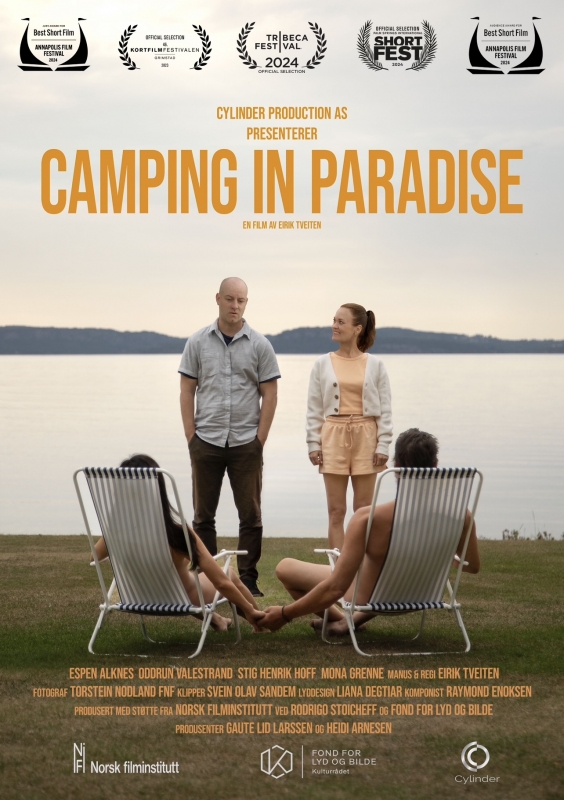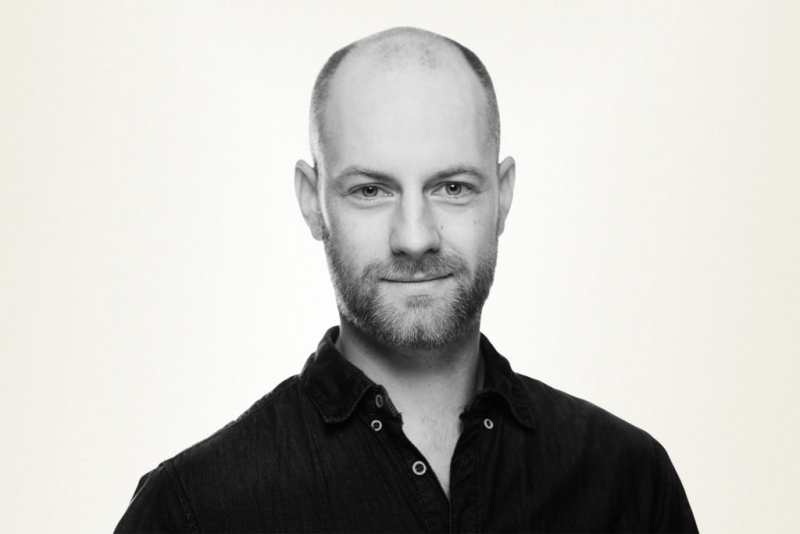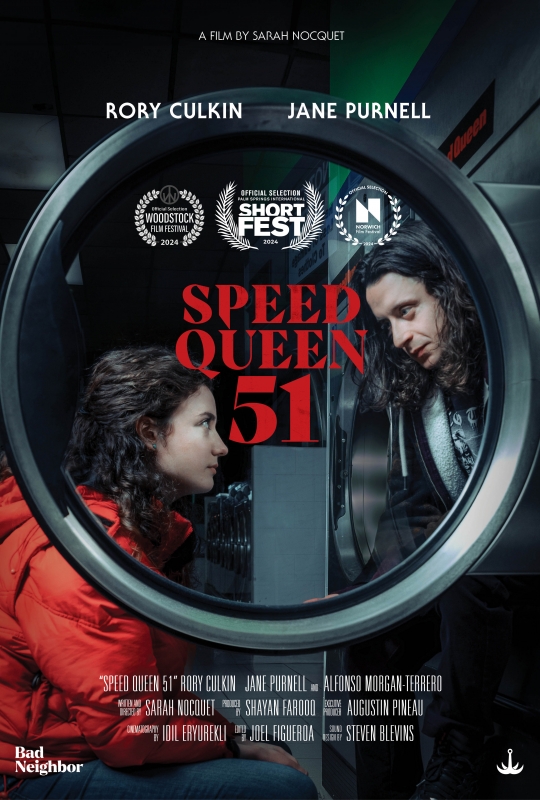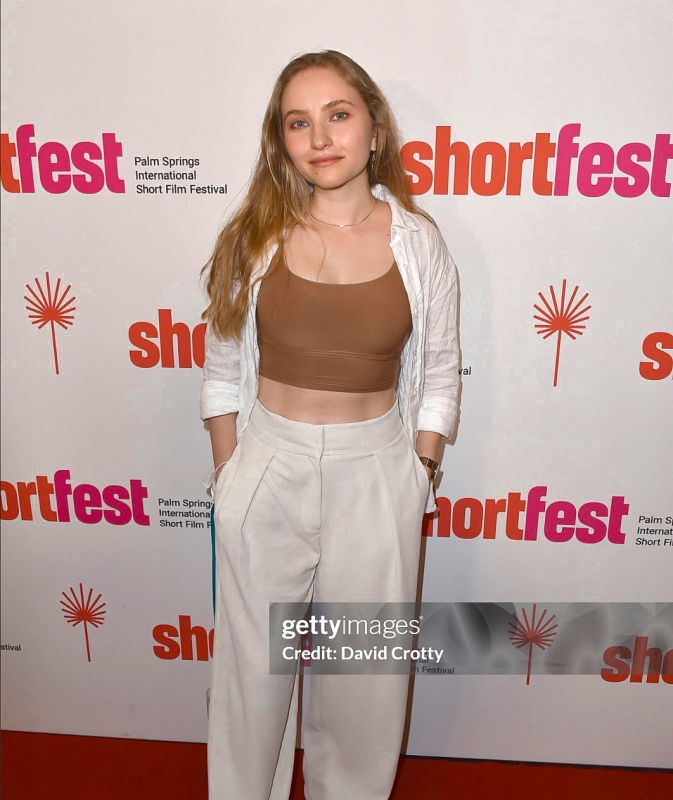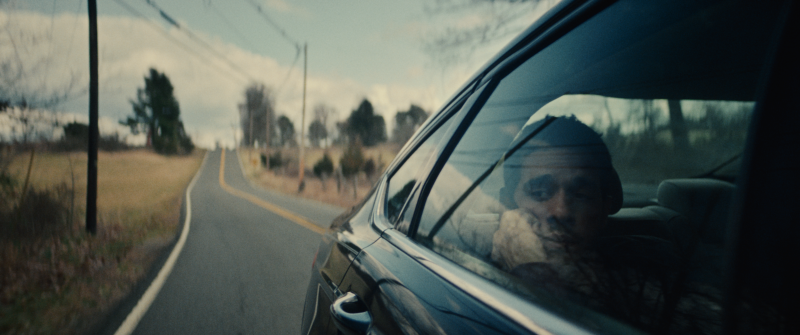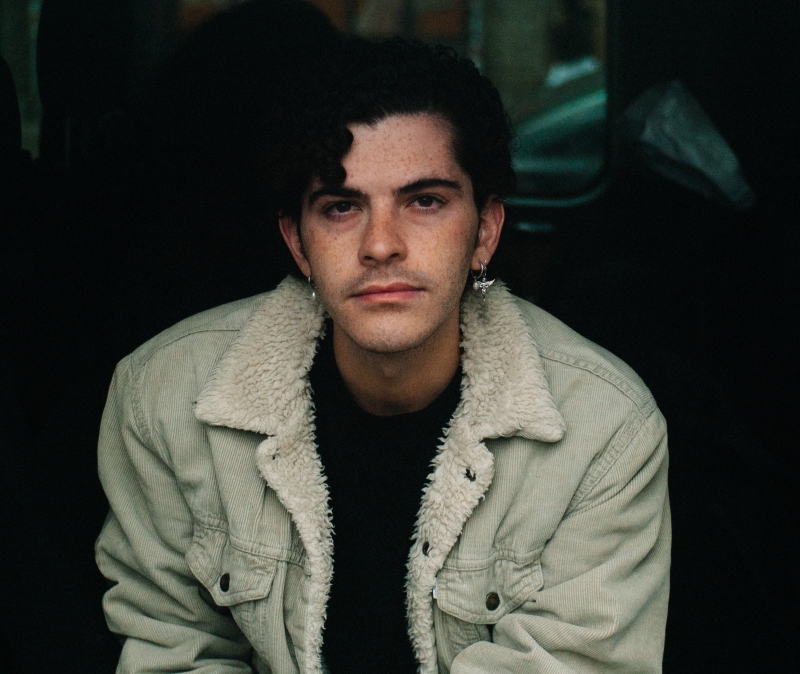|
|
||
|
Pro Tools
FILMFESTIVALS | 24/7 world wide coverageWelcome ! Enjoy the best of both worlds: Film & Festival News, exploring the best of the film festivals community. Launched in 1995, relentlessly connecting films to festivals, documenting and promoting festivals worldwide. Working on an upgrade soon. For collaboration, editorial contributions, or publicity, please send us an email here. User login |
Interview with former Golden Lion winner Milcho ManchevskiTo commemorate one of the world's oldest and most respected festivals during this 68th Venice International Film Festival, I present you with an in-depth interview with one of the prestigious Golden Lion winners for Best Director, Milcho Manchevski, who won the award in 1994 for his epic masterpiece BEFORE THE RAIN (1994). This interview has a story. We began it in the gardens of the Hyatt Regency Hotel in Aruba during the 2nd annual AIFF in June, continued in Sarajevo during the 17th annual SFF in July, and have finished now just in time for La Biennale, 68. I interviewed Milcho about his latest film MOTHERS (2010) and his first feature BEFORE THE RAIN (1994) and we discussed film in general- the art and the industry. MY INTERVIEW WITH MILCHO MANCHEVSKI... Anyone familiar with Milcho Manchevski’s films knows these are not your popcorn hotdog candy Friday night at the movies. Philosophical and poetic, suggestive and visionary, Milcho’s films- MOTHERS (2010), SHADOWS (2007), DUST (2001) and BEFORE THE RAIN (1994)- are avant-garde experimental experiences, forcing us to not only be entertained while watching but to also really look at life- to face its realities and fictions, its traditions and nuances, its beauties and horrors. There are movies and then there is cinema and Milcho devotes his life to the latter, designing delicacy (but certainly not delicate), polished, precise, perfection- ART. You are what you eat, so they say, so unless your thing is the hot body with ‘the mind’ or unless you consume and shop ‘organic’, this is the wrong medium for you; but, if you seek soul-nourishing, thought-provoking, mind-enriching, unforgettably disturbing and pleasing (even life-changing) film, you’ve walked into the right theater.
ME: So, let’s start talking about MOTHERS. In MOTHERS, like BEFORE THE RAIN, its told in a triptych type of style. Can you tell us about this kind style or structure of storytelling and why you like it? Is there any kind of symbolism? MILCHO: It just feels right. It’s not something rational, nor a premeditated thing where I say, ‘Eureka! Three-part structure!’; not like three is a magic number or anything. It provides balance and stability. Also, it provides variety that you often don’t have in a singular narrative. The stability we find in a good three-part story that you wouldn’t have in, for example, a two-part structure is due to the fact that three stories can play off of each other in a variety of ways......MOTHERS is an asymmetrical triptych because one story is very short, the middle one is pretty long and the third one is the longest, and what makes them more unusual for some people is the fact that one of the three stories is a documentary and the other two are fiction. To me, that was really intriguing. Why do we have to stick to conventions, which are suffocating us both as artists and as humans? Why not play with it as long as we can produce something beautiful, something that helps the communication between the artist and the viewer, and touches one’s heart? I decided to play with this convention and to challenge it. Of course, it has been done before: filmmakers have put documentary and fiction in the same piece, but this one is done slightly differently...Another thing that sets MOTHERS apart in a small way is that the three stories never come together in a conventional narrative way. There were requests that I write a merging ending, or a place where they would merge in an old-fashioned conventional way, but I felt that was a copout really. It was more difficult - but hopefully also more satisfying - if the piece remains austere, stark, ascetic, where the three parts are completely separate, and as a viewer you yourself try to make the narrative connections if you really need them. Or, if you’re more relaxed about it, you could enjoy the tonal and the thematic connections without trying to put the three stories into one big unified story as we have been taught all our lives. Treat it like art which relies less on a rigid narrative pattern, and you might be up for a great emotional journey. ME: It’s interesting because last year I interviewed Guillermo Arriaga, writer of the film BABEL (2004) and there are very few directors who have experimented with this really different nonlinear narrative. I mean, Arriaga, Tarantino, Manchevski...is just so pushing the envelope. Why do you think? MILCHO: It touches upon the way we experience things. We don’t experience things in a linear way, but we have been taught that things are linear. We are told history and mankind is moving forward- 1, 2, 3, 4, 5…. - but I’m not sure that’s entirely true. There are all kinds of swerving and zigzagging roads in our mind, and possibly in the nature as well. Narrative film is building on that old-fashioned approach in that it insists on linearity. Sometimes the narrative film toys with little things like flashbacks or framing devices while really insisting on a beginning, middle and end, and usually in that order... So, when you successfully undermine that, it reminds us of all the possibilities opening in front of us, the possibilities to be freer and hopefully more inventive in telling a story and putting together a narrative work of art – film in this case. Secondly, it reminds us of the way that we really experience the world. I don’t think that we experience it in a linear way. We are suffering from the dictatorship of the cowards and the corporations. Film could be much more fun. And, I’d argue that it would also be more commercial if that pressure was less. ME: Well, there’s a long way that it can go. I mean cinema is still young. Literature went through similar movements from linear to stream-of-consciousness writing, etc. So, there’s still a long way to go in film. MILCHO: Pretty much. It seems the other arts have moved on into modernity, but film is still stuck in the 19th century where the novel was before James Joyce and painting before Picasso and Dada. ME: Yeah, exactly. It’s funny how art has to go through this long process of evolution. MILCHO: Unfortunately, narrative film is squeezed in a shoebox, or rather in shoes three sizes too small; the framework of two hours- beginning, middle and end- main character, supporting characters, one unifying feeling... I think that the corporate dictatorship expresses itself more in the dictatorship of what kind of a feeling your audience is going to walk out of the theater with than the type of plot your film will have. ME: And the point is to make people think right? I mean, of course there is ‘art’ for entertainment and then there is art for true art, right? MILCHO: If its sole purpose is to make money then it’s not art by definition. Not because it is not good, but by definition. I’m not saying it’s better or worse, but it’s not art.... Here’s why: the purpose of making art is to make art, to create a piece (of matter in space or in time), which has no other purpose but to be beautiful. Not beautiful like a sunset, but beautiful like seeing the results of a beautiful human mind and heart and hand at work. At work, creating a piece whose sole purpose is beauty – and which achieves this because it contains a little capsule of the artist’s essence – a powerful feeling or a concept that want to be communicated to another human being. You know, some things are not for sale. That’s the bottom line. ME: So, what would you say to the people who make an industry out of film? The cycle has to go right? Many people also just want to watch things to escape. There’s that too. MILCHO: They’ll go on making replica films for the sole purpose of making money and satisfying their hunger for profit or fame. They don’t need my approval. And I’m not saying that only Bergman is good. But – don’t go around insulting my intelligence by calling every doodle a drawing and every drawing art. Not every piece of celluloid with end credits deserves to be called a film... We could have more daring, more innovative, more entertaining films – and they would even make more money. I think films would be more entertaining if they’re freer to play with things. We go to the movies to see something new (people seldom go to the same film twice), but the mainstream films we see are mainly replicas; we are primed to think that only slight variations on existing themes are acceptable… You mentioned Tarantino. Tarantino is a perfect example. What he does is often innovative and yet it is commercial. You don’t have to knock off replicas in order to be commercially viable. Unfortunately, what the Hollywood industry and the festival industry and the European films funds do is encourage repetition and derivative work. They sing praises to the recycling of the familiar. By doing this they try to do what corporations always want to do – control the flow. But they also strangle it. ME: Yeah, when you can get to that point, when you can have a success off of your innovation then you can be freer. I mean, no one criticizes Tarantino because they know whatever he makes will be a success, etc. MILCHO: It’s good to have a climate where people can do something that’s innovative. Again, it doesn’t have to be radical, but the author needs to feel free to digress from just repeating the same formula (and it does not matter whether the formula is a car chase, a Sundance 20-something’s bitter-sweet angst, or a Miramax chocolat-art). There’s no progress without this freedom. Yet, there’s so much fear and so much desperate ambition. The film business, and especially Hollywood, run on fear. They even strangle what could work commercially out of fear. ME: Well, and since film is a collective art you have so many cooks in the kitchen on what was originally an authentic original dish. MILCHO: There are two different things here. One is a collective art where creative people work on the piece itself with an understanding of what that piece is meant to be. And then there are the cases of people without creative credentials dictating how a film is to be made. Ultimately, it boils down to a simple question: Who are the cooks in the collective work? Is it the writer, the director, the composer, the costume designer, the editor, the actor, or is it the various sorts of commissioning editors, creative executives and co- executive associate producers who earn their right to play in the sandbox not on the basis of their creative input, but solely on the basis of the fact that they have positioned themselves close to the checkbook (which is not even their own). ME: So, let’s talk about MOTHERS. Some people love it and get it. And then others love it until the end of the second part and hate it when it gets to the third. What do you have to say about the final part of MOTHERS and what your purpose is for that? MILCHO: MOTHERS is all about the whole. Not about its parts alone. It’s about the contrast created by the three parts, the inner tension of the three parts, not the outward-looking narrative. It’s about how a dark and stark documentary reflecting on ugly reality works off of beautiful images (or “beautiful images“) and beautiful landscapes and a warm heart of the film, which is the fiction portion. So to talk only about the fiction is to do MOTHERS injustice; it’s also to misunderstand its purpose and its intention. It’s not meant to be sweet. I don’t make sweet films. I feel that when people like only the first half of MOTHERS they like a different kind of film, not the kind of film I’m interested in making. I’m not interested in making something that’s going to comfort in a simplistic way. ME: Which became pretty obvious in the second part because we see that you are saying, ‘look, here’s a beautiful movie’ and then BOOM, we get something totally different and even scary in the third part. MILCHO: I can make a sweet movie with my hands tied behind my back, but I am not interested in that. I like art that stirs me up and even disturbs me. Disturbing in art is good. Sometimes it is good in life, too. Look, some people like TITANIC and some people like Godard. As long as it’s genuine liking and not groupthink (or conforming to publicity), it’s fine with me. I know that the audience with this kind of a film is fairly limited and that’s perfectly fine. Making the creative compromises to get bigger audience feels like selling my soul to the devil or selling a pound of flesh for something that is not very important to me. If people like something that you’ve made but you don’t really like it yourself what good is it – except that it buys you a pool or a bigger house? ME: Well, MOTHERS is definitely reflexive cinema because while you’re watching, you find yourself looking around to see if others are also confused or shocked and if maybe suddenly the projectionist is screwing around and has put on another film. MILCHO: It was that particular shock that I was after. As a viewer, I like that kind of a jolt in art that I myself watch or listen to – whether it’s film or a piece of music or a painting or performance art. I’m interested in that jolt as an artist as well. Of course, as long as it makes sense in the piece as a whole. I know that this kind of an emotional jolt and mood shift is the most difficult thing to sell in any film because we have been primed to stick with the same mood and tone through a two-hour film; even if you fracture the story, even if the plot jumps around, you’re expected to make a film that in its tone is consistent. Either the whole thing is scary, or sweet, or serious, or it’s a romantic comedy, a silly comedy… but you’re not supposed to start with DUMB AND DUMBER and then shift into a John Sayles movie. Making that kind of a surprising film or watching that kind of a film could be more satisfying if we let go and allow ourselves to take it in with lungs wide open. ME: It reminds me a bit of TREE OF LIFE (2011) which won the Palme d’Or this year, something very similar to MOTHERS occurs where ten minutes into a narrative film, and then out of nowhere we are forced to watch what seems like 45 minutes of a BBC creation of life documentary series. It’s completely new and innovative and yet the masses seem to be responding to it, possibly because Brad Pitt and Sean Penn are in it. LOL MILCHO: It’s good to let go of the tyranny of the linear storytelling and tonal uniformity, and to enjoy something different. I’m not saying that this type of filmmaking is good by default. It could be bad, silly, pretentious or not your cup of tea, but to dismiss it only because it deviates from the dogma, from what is supposed to be the way in which stories are told is narrow-minded and it deprives you of the opportunity to experience something that might expand your horizons and enrich your experience. ME: Which changes art. I mean, it takes one person to start doing something new for others to follow and then changing the world… MILCHO: It’s so simple to tell a gripping single-tone linear story, it’s almost boring. ME: Okay, now that we’ve discussed MOTHERS, which I loved by the way. I would now like to go to one of my favorite films ever made, BEFORE THE RAIN. What was it like to have such a success (the Golden Lion, the Oscar nomination, one NY Times’ ‘1000 Best Films Ever Made’), I mean did you feel after that, ‘well I can’t get much higher that this so now I’m going to relax’ or, I mean how did you feel after that? MILCHO: Obviously this sudden and enormous success created expectations, whether you’re aware of them it or not. And since I was always a straight-A student I felt like I had to fulfill those expectations. It was like a train had hit me, and said: “Now run with me!” On the other hand, it was everything I was trying to do worked, and it worked pretty much everywhere: from art-houses in Asia to Hollywood studio bosses. I had people coming to me who have related to the smallest detail in ‘Before the Rain’; I saw people walking out of the theater in tears; I was approached by people who’ve seen it 20 times, I found myself at an academic conference about BEFORE THE RAIN; I listened to Mick Jagger describe the plotline of BEFORE THE RAIN to Don Was…. I don’t know what it is in that film, but it elicits incredible reactions... ...What I tried to do after BEFORE THE RAIN was to keep on making the kind of films I wanted to make, rather than repeating the same thing. Yet, I still expected the same kind of mass acceptance – and that is something that an artist should not burden himself or herself with. Your dialogue must be with the work itself, not with the audience or with the critics. ME: Do you think that part of the major success of BEFORE THE RAIN was also timing as it came out right in the midst of Yugoslav Wars and was one of the first films really touching on that subject? Sometimes success can be all timing? MILCHO: The basic emotion and the cinematic execution in BEFORE THE RAIN are like firestorms. They are simple and complex at the same time. There is both sincere naïveté and sharp calibration in that film. Whatever it is, people really, really connect to something in that film on an extremely powerful way. ME: You also love photography. You have published a photography book called FIVE DROPS OF DREAM. Can you tell us a bit about that? MILCHO: FIVE DROPS OF DREAM is a great experience for me. It is making real art with a smile, something fun, like a child playing in the street. There was no need to explain it beforehand, and I followed the images and my instinct. The exhibition and book consist of 49 photographic series (or compositions), each consisting of five photographs in a horizontal string. They are grouped together based on a visual or an emotional code, seldom based on a funny narrative blip. The book and exhibition is funny and light without being shallow, and it takes joy and pride in being actively alive. I am almost prepared to say that both the process of taking these pictures and assembling them into compositions (series), and the result are more satisfying than any of the films I made. ME: Also, you tend to love using no name actors and fresh new talent. Why is that? And how do you find this incredible talent? MILCHO: I really don’t care if an actor is a name or not. I like working with good actors, regardless of whether they are “names” who can open a movie or unknowns. Working with actors, along with writing, is probably my favorite part of directing. The characters and the story come alive when you start rehearsing with actors. I appreciate actors who have certain energy, but almost more importantly, I am interested in their craft. So, we’d sit down and look at many, many potential actors, and see who’s right for the part. I listen carefully, and I think I can hear the truth in their performance, and that is all that matters. I do something similar on the set – I avoid looking at the monitor and try to stand next to the camera in order to observe the actor from as close as possible, and trying to see if I believe what s/he is telling me. In MOTHERS, as always, we went through a rigorous and long casting process, saw hundreds of actors, and in the case of the two nine-year-old girls, we saw more than a thousand candidates. In the end, we picked the best actors for the parts… I also subscribe to what Bergman said about rehearsal – it is where the performance is created. The filming itself is only re-creating. If during rehearsal we manage to get to 80% of where we want to go with the scene, then I hope the actors can put that in a jar and save it for the shoot, where we will ramp it up to 100%. ME: Is there another film on the horizon? What can you tell us about your next plans? MILCHO: Not sure. I am writing a documentary that is not a documentary called SUNSHINE, but I am beginning to think that instead I need to take a long trip and take more pictures, spend several years just photographing things and people. ME: Your cinema has made history! Thank you Milcho! ;-) Interview conducted by Vanessa McMahon from June-August 2011.
Director Milcho Manchevski accepting the Golden Lion Award at Venice Film Festival 1994. 27.09.2011 | Vanessa McMahon's blog Cat. : actor Artist Aruba Asia Author BBC Before the Rain Brad Pitt co- executive Culture designer , the editor Director director , the composer Don was editor , the actor energy Entertainment Entertainment Film Golden Lion Guillermo Arriaga Hollywood studio Hyatt Regency Hotel Interview with former Golden Lion winner Milcho Manchevski James Joyce La Biennale Major Mass media Mick Jagger Milcho Manchevski Milčo Mančevski Next Magazine Person Attributes Person Career Politics Politics projectionist SARAJEVO Sean Penn Sundance the Golden Lion the Golden Lion Award the Oscar Tree of Life Vanessa McMahon Venice Film Festival writer writer , the director Your cinema Interviews
|
LinksThe Bulletin Board > The Bulletin Board Blog Following News Interview with IFTA Chairman (AFM)
Interview with Cannes Marche du Film Director
Filmfestivals.com dailies live coverage from > Live from India
Useful links for the indies: > Big files transfer
+ SUBSCRIBE to the weekly Newsletter Deals+ Special offers and discounts from filmfestivals.com Selected fun offers
> Bonus Casino
User imagesAbout Vanessa McMahonThe EditorUser contributions |



















